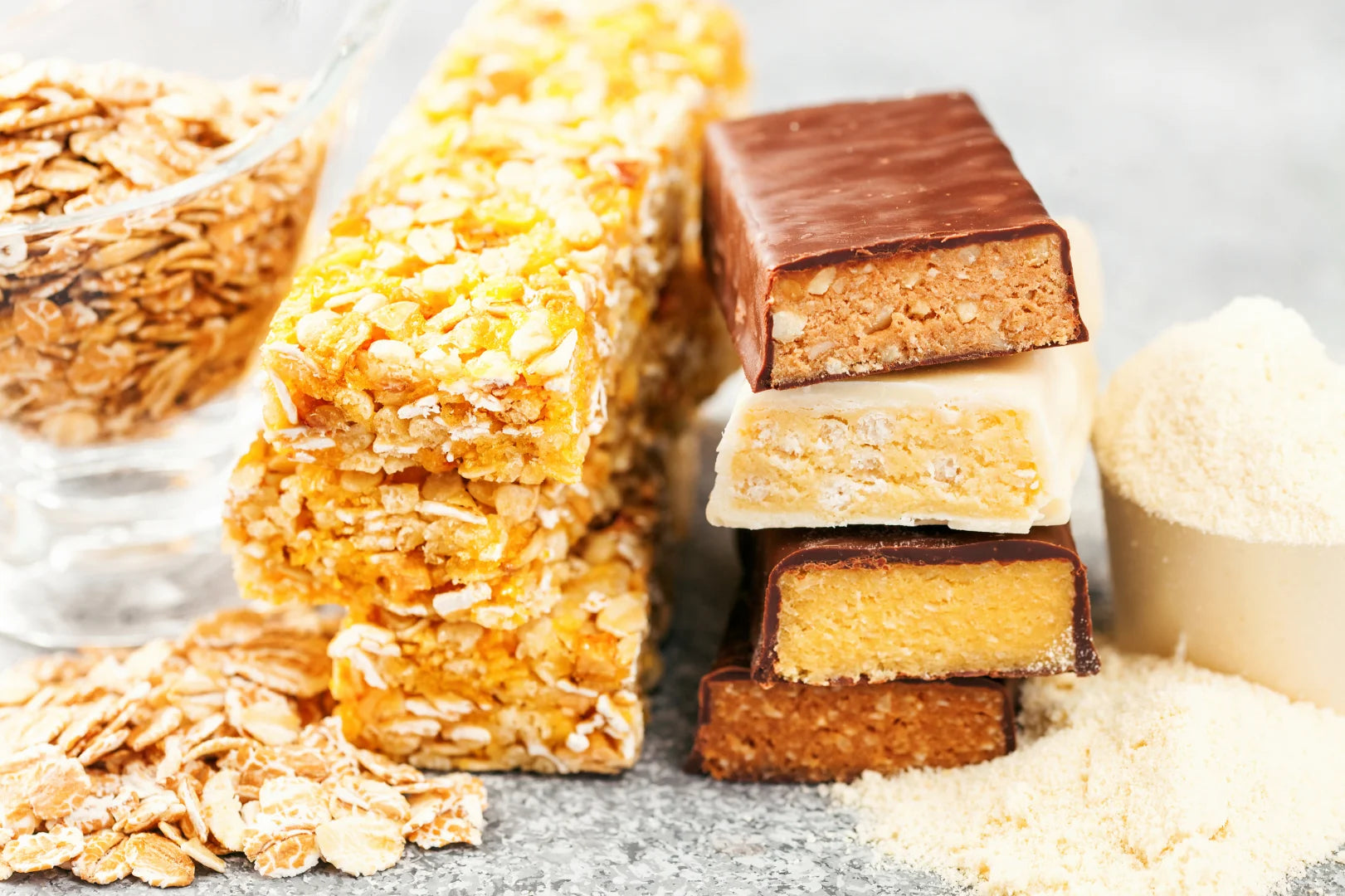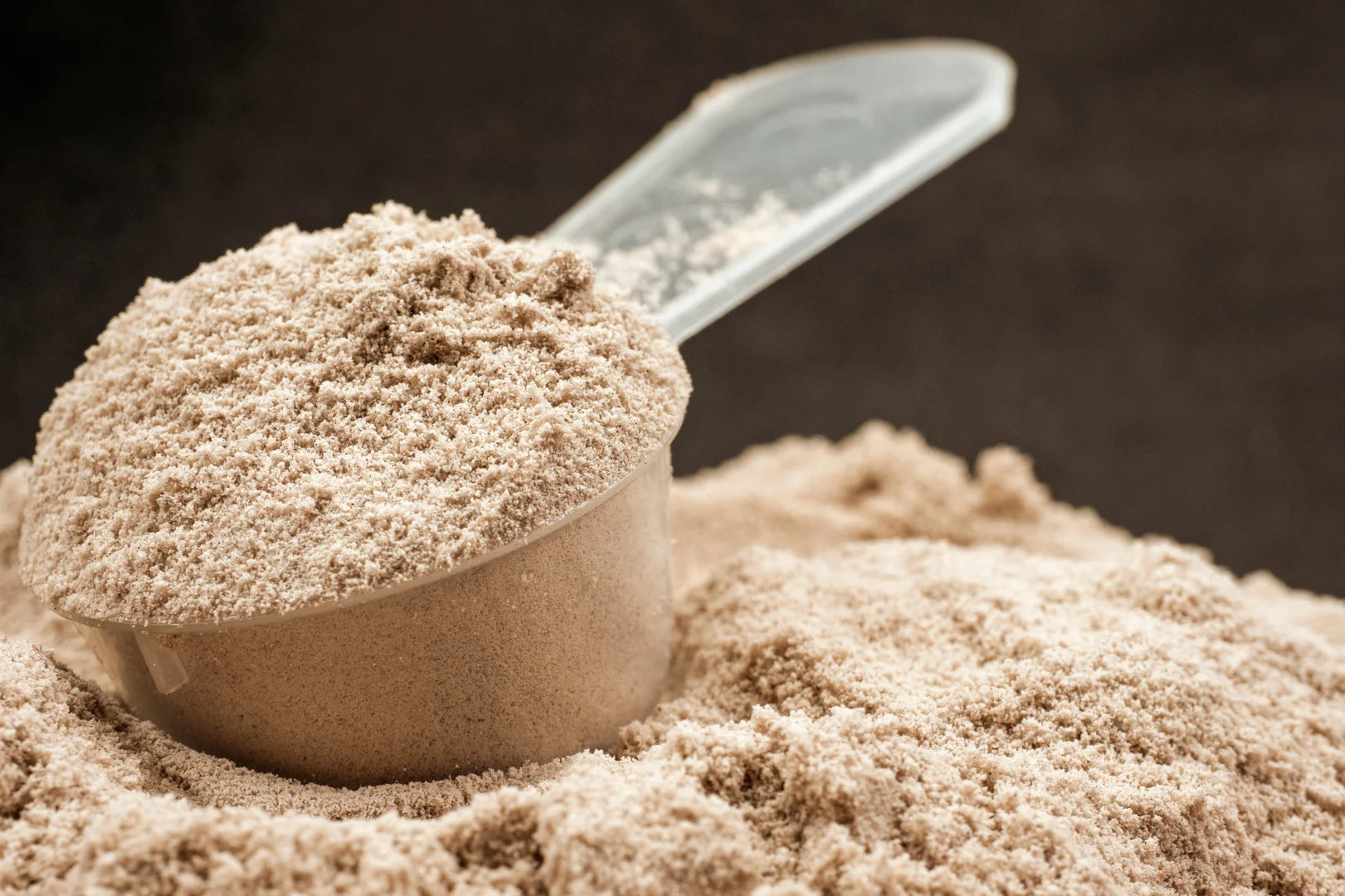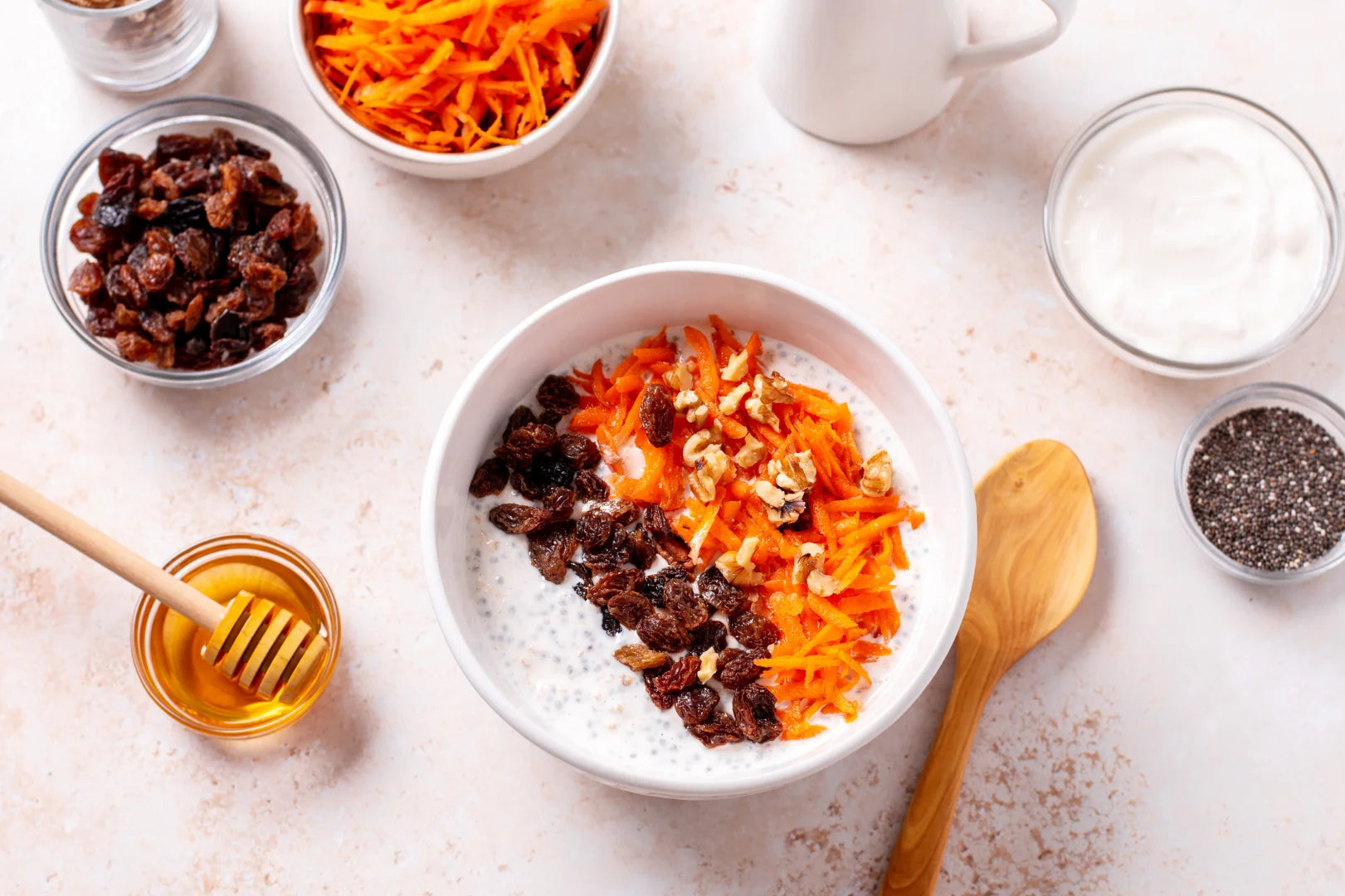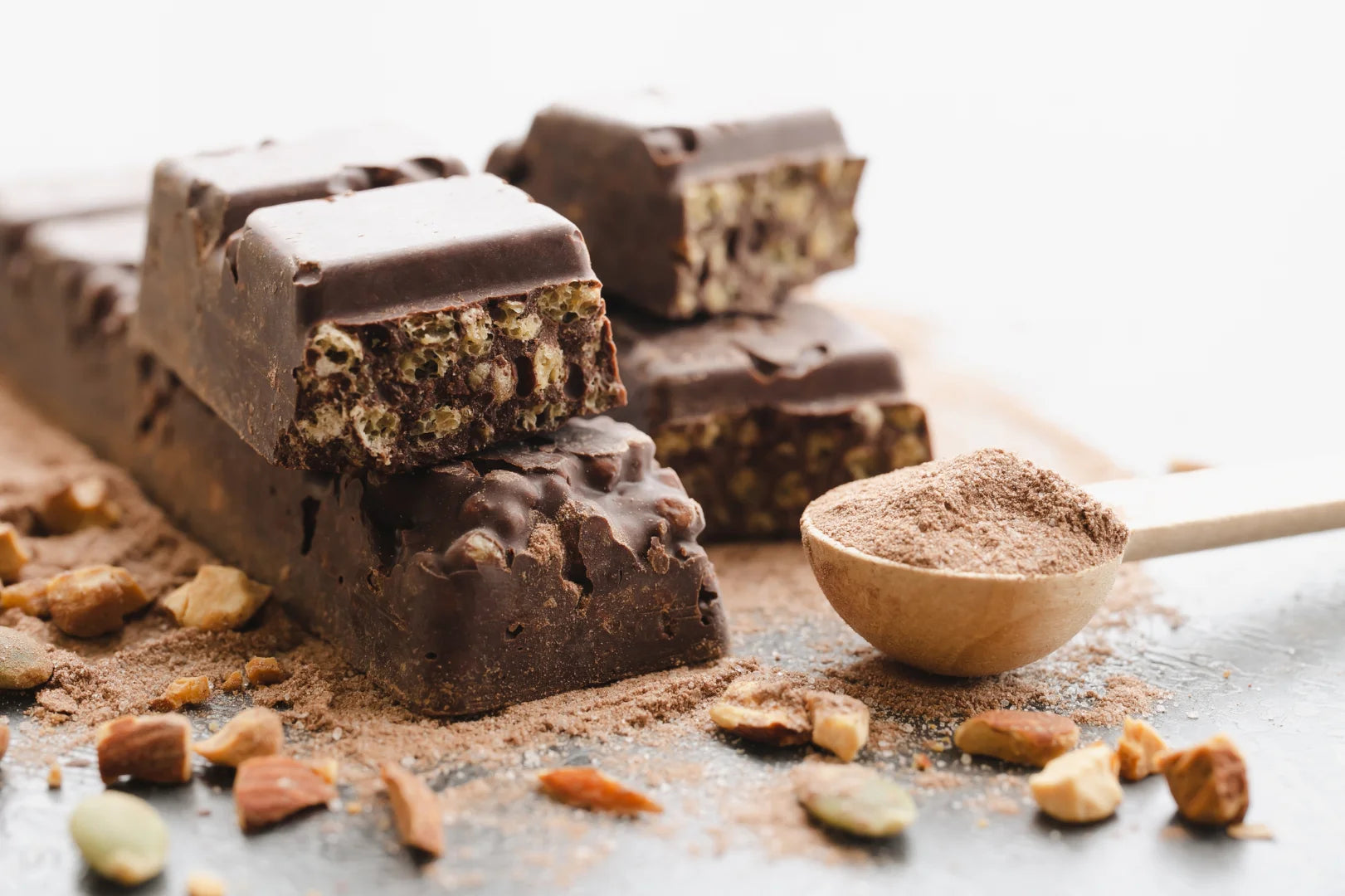Protein is an important part nutrient that our body uses for muscle building and repair. It gives our bodies the energy needed to repair and build tissues, and unlike carbohydrates, it doesn’t provide a quick energy boost, but a longer and sustained one.
Our bodies take a longer time to digest and metabolize protein, which is why it gives you a feeling of fullness for a longer time.
In this article, we’ve covered how our bodies use protein for energy, which foods give the most energy, and how much protein you need daily .
What Does The Body Use Protein For?
Most people know that protein is used for muscle building and repair, but it is also involved in a lot of other bodily functions.
Not only are proteins used for building muscles, skin, hair, and nails, but they’re also essential for the production of certain enzymes that are responsible for digestion, energy production, and cellular repair.
In addition to that, protein also carries vitamins, minerals, and oxygens throughout the body, which gives your body the energy it needs to properly function.
The primary functions of proteins are:
Building and repairing: Our bodies use protein as a building block for tissues such as muscles, skin, hair, and nails.
Enzyme production: Proteins are important in the production of certain digestive enzymes that boost biochemical reactions in the body and provide energy.
Transporting nutrients & oxygen: Proteins carry vitamins, minerals, and oxygen throughout the body.
Fighting infection: Protein helps create certain antibodies that fight off illnesses and keep us healthy.
Does Protein Give You Energy?
First, we need to understand how our body looks for energy.
When your body is looking for energy, it first looks through the most easily accessible source - carbs.
Consuming carbs and sugars means that your body breaks down those nutrients into glucose faster than usual.
That glucose is then free in your body and is used first by the body for energy.
Protein, on the other hand, is broken down into amino acids, which are building blocks that are broken down and later recombined in the body via synthesis.
Once you’ve depleted your freely available carbs and fats, your body starts to use protein as an energy source.
On a normal day, protein provides only 5% of daily energy, and if glucose stores are depleted, it can give up to 15% of energy.
How Much Energy Does Protein Provide?
Very little. On a normal day, protein gives you only 5% of your daily energy, which means the rest comes from other nutrients - such as carbs and fats.
In some cases where other nutrient storages are depleted, the daily energy given by protein reaches 15%.
How Long Does It Take For Protein To Turn Into Energy?
Protein is known for being slow-digesting.
It takes our bodies a longer time to digest it and metabolize it, which also means you won’t feel an energy “kick” when you take a couple of protein bars.
What Foods Give The Most Energy?
The best foods for an energy boost wouldn’t be protein-packed foods , but rather foods that are filled with carbohydrates, like fruits , vegetables, and whole grains.
Healthy fats from fish, nuts, and vegetable oils help with fuel for endurance sports, like running or cycling.
Low sugar protein bars can help boost the immune system and promote muscle growth after an exercise session, due to the high content of protein and no added sugar.
Does Protein Fill You Up?
Protein does fill you up much more than other nutrients. In fact, studies have shown that protein is by far the most filling nutrient.
This is because protein takes a longer time to digest than other types of nutrients, and it can help you prevent unnecessary snacking.
How Much Protein Do You Need?
The recommended amount of protein you need per day (as an adult) is approximately 0.8 grams of protein for every kilogram of weight - or 0.36 grams per pound.
15% - 35% of your daily caloric intake should come from protein sources.
Only two protein bars a day paired with a healthy diet can help you match these requirements.
How To Get More Protein In
If you’re constantly on the go or rushing to work, there might be a better solution for you than to plan & prepare meals every evening.
Even harder if you’re following a vegan diet and struggle to find plant-based protein sources.
Here are a couple of ways you can get more protein in daily:
Protein Bars
Protein bars are a great snack for fitness lovers because it’s small, quick, convenient, tasty, and healthy.
1,500+ people loved our protein bars and purchased them again. This is because our vegan protein bars are also allergy-free , low sugar , low calorie, high in protein, and they taste absolutely DELICIOUS.

Try Our Protein Bars Starter Pack For Free, Just Pay Shipping!
Check out all 6 Protein Bar flavors for free and just pay shipping of $6.99.
If you're looking to get started with delicious plant-based protein bars made with top-quality ingredients and free from allergies, artificial ingredients, and GMOs, try our starter pack with 6 bars of different flavors:
Simply click the link below to get the discount code, and apply it on checkout!
Max 1 per customer. US Only.

Protein Powder
Protein powder is similar to a protein bar, except you drink it instead of eating it.
Simply mix your protein powder with milk, water, or any other liquids , and enjoy it throughout the day.
There are two different types of protein powders: whey protein powder and plant-based protein powder.

Protein Oats
Adding protein to your morning oatmeal is a delicious way to start your day with a protein boost. You can mix in protein powder, nuts, seeds, or nut butter to increase the protein content of your oats.
Overnight oats are a delicious way to start the day with a protein boost.
They’re easy to make and easy to consume, which makes them a great protein snack.
You can also mix your protein oatmeal with powders, nuts, seeds, and other ingredients.

Protein Snacks
Protein snacks, such as protein chips, brownies, cookies, and pancakes are becoming more and more popular as a healthy and delicious snack you can eat anytime - in between meetings, calls, or events.

Can a Lack Of Protein Make You Tired?
When you don’t consume protein, your body may not have the necessary building blocks to maintain energy levels.
Muscles won’t receive the necessary nutrients to function properly, and a lack of protein can lead to anemia because cells don’t get enough oxygen, which makes you more tired than before.
Some symptoms of protein deficiency are:
Swelling
Skin and hair changes
Muscle loss
Prone to sickness
Stunted growth
Conclusion
Protein isn’t a great energy source like carbohydrates or fats, but it gives our bodies a gradual and sustained energy boost.
In addition to that, protein is also necessary for other bodily functions, like muscle building, enzyme production, and fighting infections.


